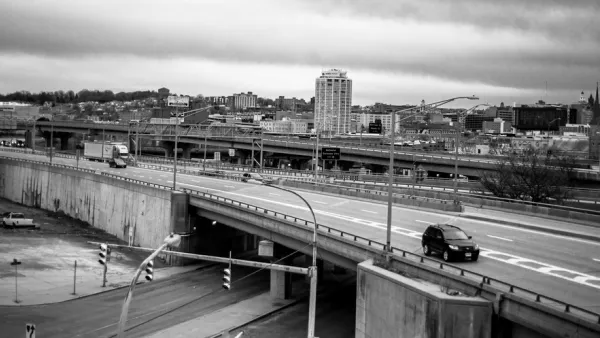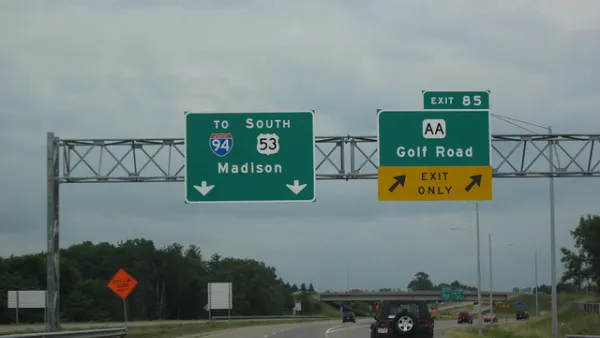A new report from the U.S. Public Interest Research Group PIRG's report estimates that road construction has cost the American public $600 billion since the highway system began.
Tanya Snyder at Streetsblog says the report shows that the traditional arguments that road construction "pays for itself", such as the economic benefit of cutting road congestion, don't hold water:
"Highway expansions are often justified as projects that relieve traffic and, believe it or not, reduce pollution. So if a highway widening achieved its stated aims, it would cut congestion and fuel consumption, which would mean fewer gas tax dollars and roads that don't pay for even a fraction of their construction costs. However, we know that new highway capacity doesn't actually reduce driving – it induces more driving.
The additional traffic created by expanding highways does generate more gas tax revenue, but still not enough to come close to covering the costs of new roads."
Thanks to Tanya Snyder
FULL STORY: Actually, Highway Builders, Roads Don't Pay For Themselves

National Parks Layoffs Will Cause Communities to Lose Billions
Thousands of essential park workers were laid off this week, just before the busy spring break season.

Retro-silient?: America’s First “Eco-burb,” The Woodlands Turns 50
A master-planned community north of Houston offers lessons on green infrastructure and resilient design, but falls short of its founder’s lofty affordability and walkability goals.

Delivering for America Plan Will Downgrade Mail Service in at Least 49.5 Percent of Zip Codes
Republican and Democrat lawmakers criticize the plan for its disproportionate negative impact on rural communities.

Test News Post 1
This is a summary

Test News Headline 46
Test for the image on the front page.

Balancing Bombs and Butterflies: How the National Guard Protects a Rare Species
The National Guard at Fort Indiantown Gap uses GIS technology and land management strategies to balance military training with conservation efforts, ensuring the survival of the rare eastern regal fritillary butterfly.
Urban Design for Planners 1: Software Tools
This six-course series explores essential urban design concepts using open source software and equips planners with the tools they need to participate fully in the urban design process.
Planning for Universal Design
Learn the tools for implementing Universal Design in planning regulations.
EMC Planning Group, Inc.
Planetizen
Planetizen
Mpact (formerly Rail~Volution)
Great Falls Development Authority, Inc.
HUDs Office of Policy Development and Research
NYU Wagner Graduate School of Public Service




























